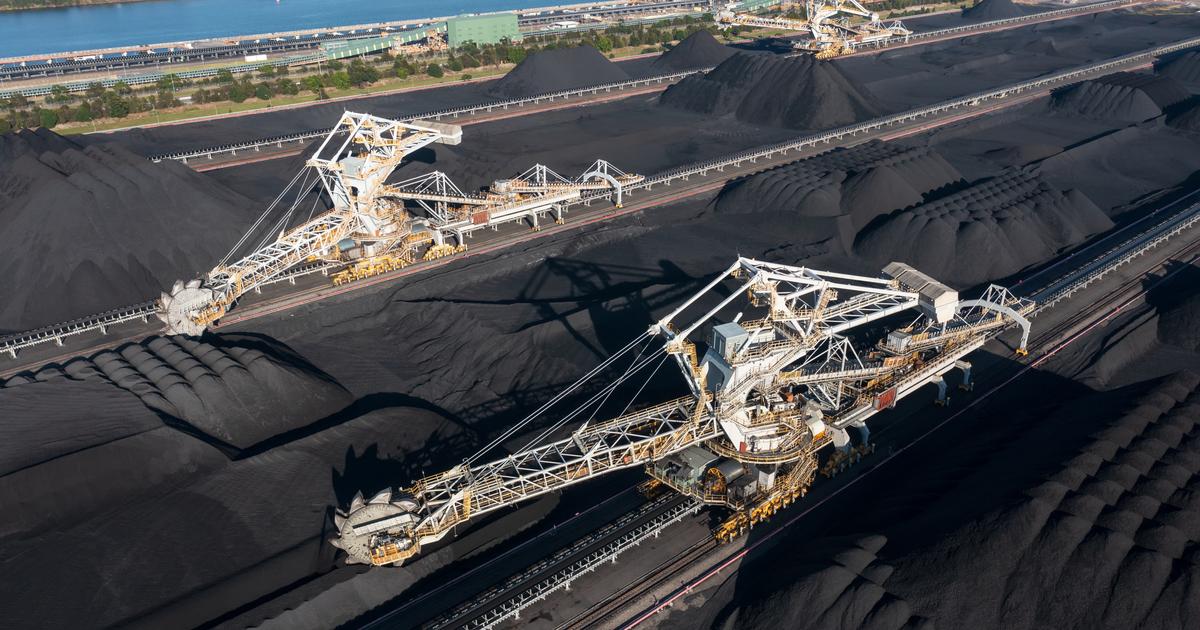The European embargo on Russian coal comes into force on Wednesday at midnight, four months after it was adopted as part of a fifth round of sanctions against Moscow, as the European Union faces severe tensions over its energy supplies .
This embargo decreed in April by the Twenty-Seven becomes effective at the end of a transition period of 120 days.
Only commercial contracts concluded before April 9 could be honored during this period.
This was the first EU sanction hitting the Russian energy sector.
The Europeans then decided at the end of May on a gradual embargo by the end of 2022 on the bulk of Russian oil.
Read alsoGlobal coal rush: “Energy nightmare”
The European Union imported until last year 45% of its coal from Russia for a value of 4 billion euros per year, and certain countries, such as Germany or Poland, which used it for their production of electricity were particularly dependent on it.
While Europe's annual consumption of coal, a polluting fossil fuel, fell from 1,200 to 427 million tonnes between 1990 and 2020, the closure of many mines on the continent has contributed to increasing Europeans' dependence on imports.
Eastern Europe is preparing for a particularly difficult winter
For coal, EU purchases from Russia have thus increased from eight million tonnes in 1990 (7% of imports) to 43 million in 2020 (54%).
Faced with the drop in Russian gas deliveries and the risk of shortages, several countries (such as Germany, Austria, the Netherlands and Italy) have announced in recent months an increased use of coal-fired power plants. .
In the first five months of 2022, electricity produced from coal in Germany jumped 20%, according to the firm Rystad.
The total embargo on Russian coal is pushing Europeans to source their supplies elsewhere: in the United States (approximately 17.5% of EU coal imports in the first half of the year), Australia, South Africa and even Indonesia.
Read alsoRussian gas: can Europe make it through the winter?
Faced with tensions on the markets, the equation promises to be complicated for Poland, a traditional mining country but a net importer of coal.
While local production has risen in recent years to about 55 million tons per year, the country still had to import about 12 million tons, including 10 from Russia.
The populist nationalist government imposed a total ban on Russian coal imports in mid-April, causing serious shortages and skyrocketing prices.
Currently, a ton of coal in Poland is worth four times more than a year ago.
Warsaw has therefore capped prices and rationed purchases, while the limited capacities of ports, railways and waterways complicate the increase in imports, fueling the



/cloudfront-eu-central-1.images.arcpublishing.com/prisa/MN66YGPQPRILE3TOGBKUQ35FWI.jpg)


